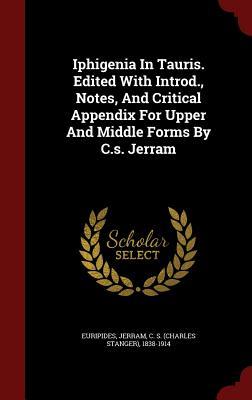What do you think?
Rate this book


198 pages, Hardcover
First published January 1, 415
IPHIGENIA:
( . . . )
I am Iphigenia, daughter of the daughter of Tyndareus. 5
My father killed me—
at Euripus where stiff breezes
spin the salt-blue sea in spirals,
for Helen’s sake
a sacrifice to Artemis in famous Aulis—
or so people think.
For at Aulis Agamemnon 10
had assembled a thousand ships,
a Greek expedition to take the crown of Troy.
( . . . )
quote from: Iphigenia among the Taurians by Euripides, translated by Anne Carson. Page 9.
IPHIGENIA:
( . . . )
Now I live as a stranger in a barren house by the Hostile Sea. 220
I've no marriage, no children, no city, no loved ones. 208
Once the Greeks wooed me. 221
I no longer sing songs for Hera at Argos,
I no longer weave Athenas and Titans
to the hum of the loom.
( . . . )
quote from: Iphigenia among the Taurians by Euripides, translated by Anne Carson. Page 14.